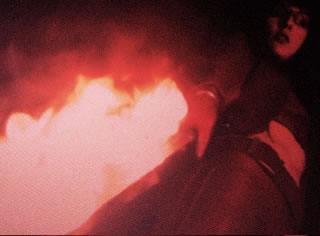
BRANDISH — THE WAVE AND FLOURISH OF BRAND
The OED: “brandish” —
Brand as fire. Notes on the Place of being.
Considering meaning and etymology, reflections on distinction and memory of meaningful experience.
I had a conversation with a friend of mine,
Dawn A. Clark.
She’s a placemaker.
An leader, architect, a designer, interior conceptualist,
place-making strategist and visualizer.
She orchestrates place creation. Her focus is, and has been, orchestrating teams in the context of creating meaningful and memorable places.
I, sometimes, perhaps thoughtlessly so, use the idea of space in referencing some of the design that we do. I think about space as being: area.
That is, a space is something that is tangible, a demarcation of latitude and longitude, a dimension that might be the gathering of an idea — either resolute or simply a plane of consideration. I don’t believe, however, that space is about being there.
That’s place.
Being in a place.
The wild, the wonderful,
the mild, the comfortable.
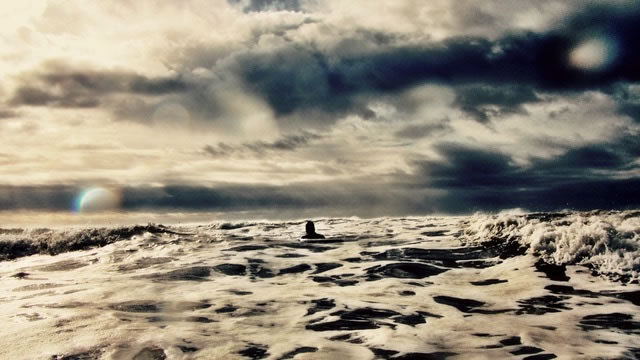
I think about places that have been unforgettable in the heart of my mind.
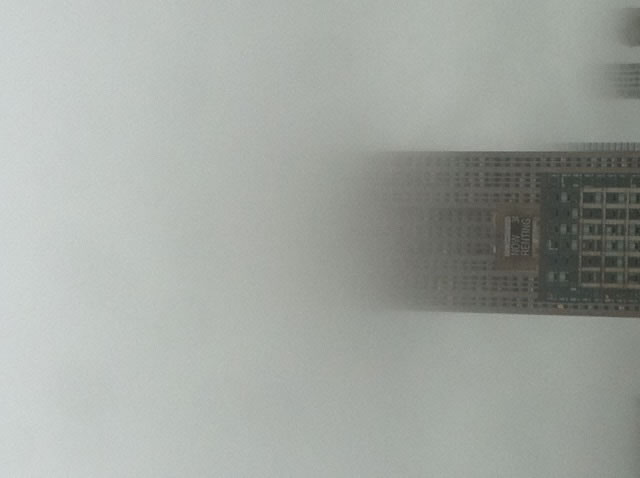
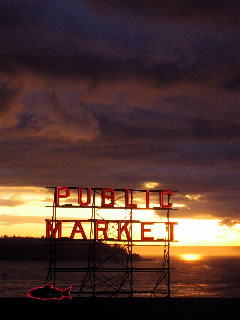
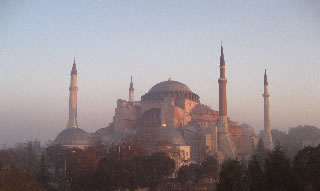
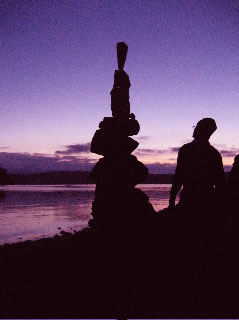
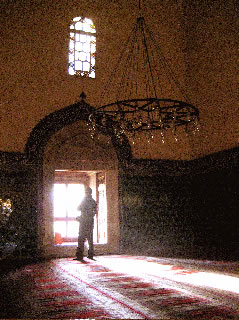
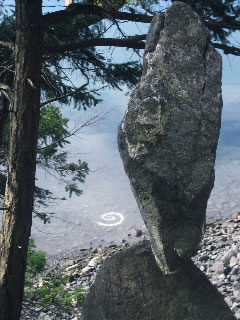
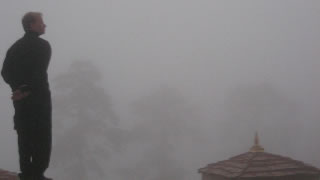
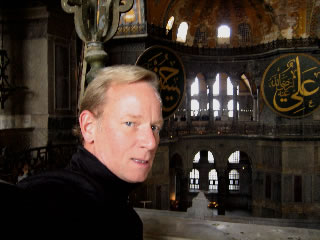
PLACE: CONTEXT EMOTIONAL
SPACE: VACUOUS UNEMOTIONAL
—
In all my travels it is about that.
Being there.
Looking for places.
Being places.
Being in a place —
that is there.
Thereness reflects a condition — it’s a kind of memorability in being and experience; there’s profound distinction in place — and in the gathering place, the palace of memory and mind fullness.
In looking through the thousands of images that I’ve photographed —
I can recall virtually every one.
I can recall the place: the time, the scent,
the light, the touch,
the sound.
And these are, all, indeed, places in the mind. Places of the heart. Places to be in. So, in a manner, using the idea of space, per se, is really not a thinking rendering of condition; it’s a word that is, inherently, vacuous.
Place then, instead of space. I’m with Dawn, her sentience. Thanks to her, for added clarity.
Dawn and I’d talked about something else, as well, to the notion of brand.
What does that mean, really?
There’s one impression, commonly held, that links to the idea of brand being the camouflage of business enterprise; it’s the covering, the skin, the attribute. David Ogilvy promulgated a positioning along those lines — brand: business > expressions > message > image. That sensitivity, from the 50s, was then an innovative posture for something that really ties to the experience beyond the mere markings of enterprise — like the markings on a cask of wine, the burned “brand” of a case of products from Spain, or the mark on the side of a truck, impressions in a potted flagon.
But I push further. And to the conceptions of Dawn’s sentiments on place (as opposed to mere space), our versioning of the brand vocabulary hearkens to the ancient etymology of the word — from Beowulf, its first usage, 1000 years back.
These variations, below, culled from the OED, embellish, the rich if not somewhat lightning-stricken, flint-sparking, warlike character of the word, in power:
You might wonder, why do I always do that, go back into the history of the word?
The reasoning is simple.
If you want to know about something, you’ve got to dig-in, excavate, go deeper, find.
And these gestures, to light, flourish and display — even swagger, speak more to activation of stance in expression. Not just stuff displayed, but flourished with bravado — fire, energy, light and distinction. For me, that links to fiery magic: the campfire, the teller of heroic stories, the mythmaker, the mysterion, the heated warmth of human beings expressing themselves — energized, dwelling in the spirit of the culture, the cult, the myth, the magic — the adventure of living. So the heart of brandish, brand, speaks to that place, not space; it’s something alive and vitally cultivating, not merely the skin of something, arranged — there’s passion there.
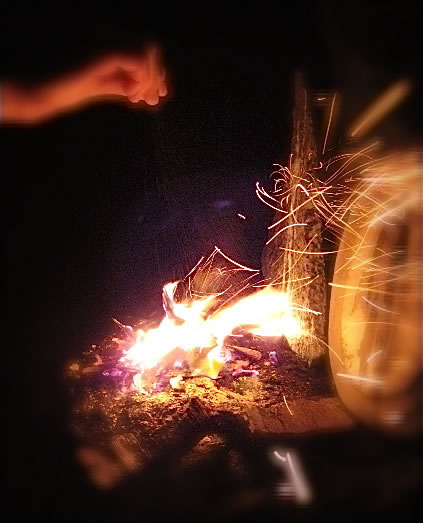
I realize this is a bit much, the below,
but scan a bit and see what you learn.
brandish, v.
(brænd) braundis-,ise(n, -ish, -issh, -ysch, -ische, 5brawndesche, branych (Cath. Angl.), 4-6 brandiss, -issh, -isch, 6Sc. brandeis, 5- brandish. [a. Fr.brandiss- lengthened stem of Fr.brandir, a common Romanic word (L. type *brandre), f. Teut. BRAND, a sword.]
1. trans. To flourish, wave about (a sword, spear, dart, club, or other manual weapon) by way of threat or display, or in preparation for action.
a1340 HAMPOLE Psalter vii. 13 He sal braundis his swerd.1382 WYCLIF Ps. vii. 13 But ee shal ben convertid, his swerd he shal braundishen.1475 CAXTON Jason 15b, [They] brandished their speris and escried their enemyes.1583 STANYHURST Æneis II. (Arb.) 54 They brandish weapons sharp edgde. 1611BIBLE Ezek. xxxii. 10, I shall brandish my sword before them. 1727 SWIFT Gulliver II. vii. 161 Draw their swords at once, and brandish them in the air. 1824 DIBDIN Libr. Comp. 726 You may brandish your mother of pearl paper-cutter. 1848 MACAULAY Hist. Eng. II. 488 A great crowd..of young peasants, brandishing their cudgels. 1874 BOUTELLArms & Arm. ii. 40.
b. fig.
c1325 E.E. Allit. P. A. 346 oou daunce as any do, Braundysch & bray y braezbreme. 1648 MILTON Tenure Kings (1650) 3 Lawes which they so impotently brandish against others. 1697 COLLIEREss. Mor. Subj. II. (1709) 152 They love to be always brandishing their Advantage.a1764 LLOYD Fam. Let. Rhimes Wks. 1774 II. 78 Your eyes that brandish burning darts. 1867 J. MARTINEAUChr. Life (ed. 4) 370 Brandishing the threat of infliction.
c. To flourish about, move vigorously (the limbs, the head, etc.); also used of a snake darting out its tongue, of a lion flourishing its tail, etc. Somewhat arch., if not obs.
a1400 Morte Arth. (Roxb.) 117 The knight anbraundisshid yche a bone.1610 G. FLETCHER Christ’s Vict. (1632) 22 And every one brandisht his fiery tongue.1834 PRINGLE Afr. Sk. viii. 260 He was now beginning to..brandish his tail.
2. absol. To flourish one’s weapons or limbs; to make a flourish or display; to swagger.
c1340 Alisaunder 1122 That hee nas loose in no lime..To byte, ne to braundise. c1350Will. Palerne 2321 Breme burnes..Brandissende wi gret bost. c1430 How Gd. Wyf taugt Dau. in Babees Bk.(1868) 39 Braundische not with in heed. c1505 DUNBARDance 33 He brandeist lyk a beir. 1533 BELLENDEN LivyIV. (1822) 338 Brandisand throw the army.
3. intr. (for refl.) Of a sword, = To be brandished.
a1649 DRUMMOND OFHAWTHORNDEN Hist. Scot.(1655) 2 Your Swords..should brandish to set him on his Royall throne. 1800 SCOTTLady of L. VI. xviii.
4. trans. Of the sun or other luminary: To dart forth, scatter(rays of light); also (rarely) to irradiate, render luminous. Obs.
1598 SYLVESTER Du Bartas II. i. IV. (1641) 108/1 His brows seem brandisht with a Sun-like fire. 1653 H. MOREConject. Cabbal. (1713) 215 This light of Righteousness..may not brandish its rays in the empty field. 1656 BLOUNT Glossogr.,Brandish, to make to..glister with gentle shaking or moving.
b. intr. To glitter, gleam, flash, coruscate.
1552 HULOET, Brandysh, or glytter, lyke a sworde,corusco. 1598 SYLVESTER Du Bartas II. i. IV. (1641) 109/1 Thine eyes already (now no longer eyes; But new bright stars) do brandish in the skyes. Ibid. (1608) 78 Orion, Eridanus, the Whale..Through Heavens bright arches brandish up and down. [1884STEVENSON New Arab. Nts.237 A branch of flame shot brandishing through the aperture.]
Oxford University Press
Great Clarendon Street
Oxford OX2 6DP
UK
Visit the OED’s home page at www.oed.com
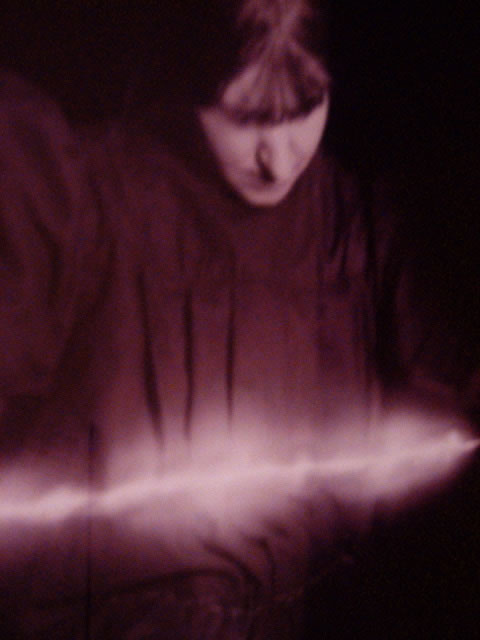
What I think about are the following strings: light is bright, and brand — emboldened, that story, that heart; it’s an ancient sentiment. It’s coming back, coming forward, coming out — expressing itself in the character of the human, that persona that seeks truth in the framing of the story, the product, the personally made, the people’s vision, coming into community for a sharing of what the one person might have, one wants, one explores — and offers in return to community.
Tim | GIRVINDECATUR ISLAND
B R A N D M Y S T I C I S M | Deep Journeys to Team & Enterprise
D i s c o v e r y: http://goo.gl/DNfwS9
HUMANS, BRANDING + H E A R T
GIRVIN BrandJourneys®
http://goo.gl/iyQIzK
*BRANDISHMENT The state and condition of the wave of brand, the flag in flourish, the catalyst of story over vistas to many.
Definitions: Copyright © Oxford University Press 2005